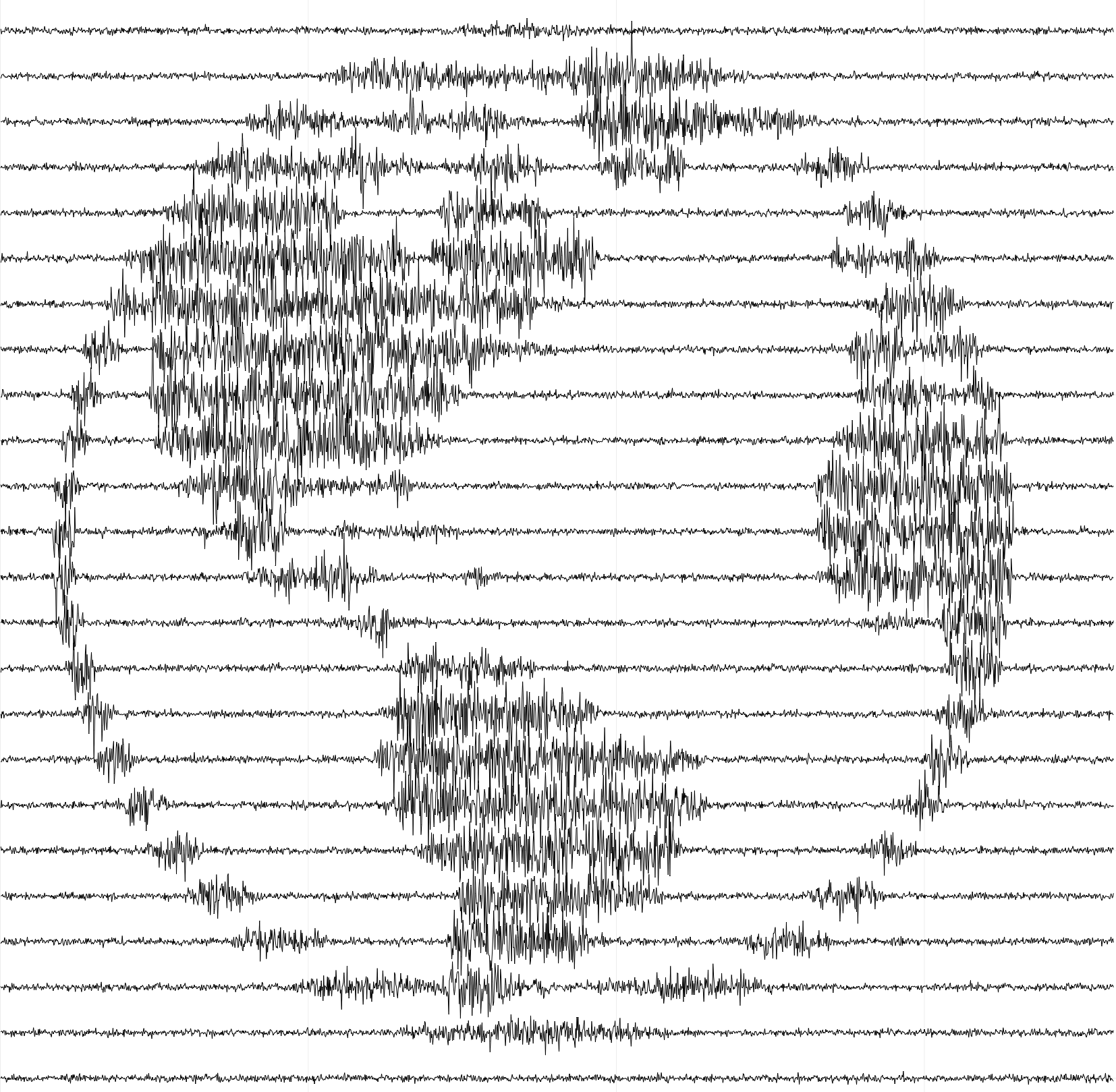
|
Analogue Seismograms: Miscellaneous Records
Point of contact: Thomas Lee |
A random collection of seismograms that have been digitized. If you are using the digitized data, please cite the papers in the Reference heading in each group.
Hawaiian Volcano Observatory
Short-period vertical analog seismograms from stations Hilo (HIL) and Uwekahuna (UWE) of the Hawaiian Volcano Observatory Network have been digitized for August 7 through 10, 1988. For description of how these data are used to determine relative time corrections between these two stations, see this page. Scanned images are courtesy of Dr. Paul Okubo.Note that there are multiple SAC files for a given image corresponding to individual traces, and they have been put into a single .tar file.
HIL (Hilo, Hawaii)
| Start Date | End Date | Component | Digitized Data | ||
| 08/07/88 | 08/08/88 | SPZ | SAC | ||
| 08/08/88 | 08/09/88 | SPZ | SAC | ||
| 08/09/88 | 08/10/88 | SPZ | SAC | ||
| 08/10/88 | 08/11/88 | SPZ | SAC | ||
UWE (Uwekahuna, Hawaii)
| Start Date | End Date | Component | Digitized Data | ||
| 08/07/88 | 08/08/88 | SPZ | SAC | ||
| 08/08/88 | 08/09/88 | SPZ | SAC | ||
| 08/09/88 | 08/10/88 | SPZ | SAC | ||
Reference
Lee, T., Ishii, M., & Okubo, P., 2020.Relative time corrections for historical analog seismograms using the single-day ambient noise correlation function.
Bulletin of the Seismological Society of America 110(6), 3185-3195, doi:10.1785/0120190313.
Tucson, Arizona
Short-period vertical seismograms recorded at Tucson, Arizona that contains the blast signals from the 1945 Trinity nuclear test. The digitization is performed on the original paper record and the left and right side scans of the 16-mm microfilm copy. Scanned images are courtesy of Dr. James Dewey.Multiple SAC files are compiled into a single .zip file.
| Start Date | End Date | Component | Digitized Data | ||
| 07/15/45 | 07/16/45 | SPZ (original, 650 MB) | SAC (60 MB) | ||
| SPZ (left microfilm, 30 MB) | SAC (130 MB) | ||||
| SPZ (right microfilm, 25 MB) | |||||
Reference
Lee, T., Ishii, M., & Okubo, P., 2022.Assessing the fidelity of seismic records from microfilm and paper media.
Seismological Research Letters, in review.
Notes
Digitized Data: Digitized Data is given either as DigitSeis output file (MATLAB .mat format) or multiple SAC files. A rough size of each type of data are provided for some of the files. For DigitSeis output, version of DigitSeis with which the analysis was performed is also indicated and the file is best examined using DigitSeis with the same or higher version number. Note that the SAC output often consists of multiple files and are compressed into a single file. The individual SAC files have filename format StartTime_EndTime.SAC (e.g., 19640212_1515_19640212_1613.SAC).
Station: Station is given by the station code. For a list of stations, see Peterson & Hutt (2014).
Time: Time is given in MM/DD/YY HH:MM format (month/day/year hour:minute).